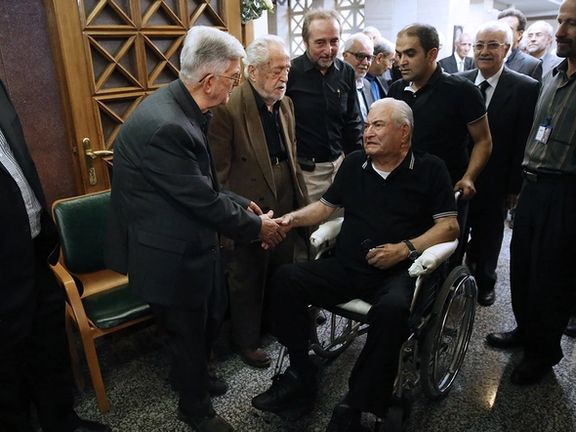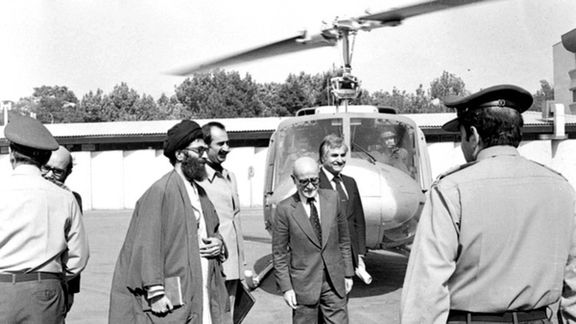Family Of Jailed Iranian Ex-Official Awarded $20m In US Court

A US federal court has ruled that Iran should pay nearly $20m in damages to the family of an Iranian politician illegally imprisoned and tortured for four decades.

A US federal court has ruled that Iran should pay nearly $20m in damages to the family of an Iranian politician illegally imprisoned and tortured for four decades.
The ruling in favor of the three children of Abbas Amir-Entezam was announced by Herischi and Associates, a Washington-based law firm that represented them in a US federal court in the District of Columbia.
The law firm sued the Islamic Republic and the Revolutionary Guards in July 2019 on behalf of Amir-Entezam’s children -- Ardeshir, Anoush, and Elham – who were 2, 6, and 9 at the time of his imprisonment.
Herischi and associates have also represented the families of ten crew members of Sanchi oil tanker, family of Omar “Chicho" Mahmoudzadeh, a US citizen who was killed in an Iranian ballistic missile and drone attack in Iraq, the families of victims of the Ukrainian flight PS752 which was shot down by Iran’s air defenses on January 8, 2020, shortly after it took off from Imam Khomeini Airport, Tehran, and US-based activist Masih Alinejad.
The plaintiffs who never saw their father again were awarded $3.25m in compensatory damages and $3.25m in punitive damages for a total of $6.5m each. Amir-Entezam passed away in Tehran in July 2018 at the age of 86. The fine is to be collected from Iranian funds in the US allocated to provide compensation to American victims of international terrorism.

Amir-Entezam was a France and US-educated civil engineer was appointed as deputy prime minister and government spokesman in the interim cabinet formed by Mehdi Bazargan immediately after the Islamic Revolution of 1979. He was sent to Sweden a few months later as ambassador when some political groups objected to his qualifications.
Amir-Entezam was summoned from Sweden and was arrested upon his arrival at Tehran’s Mehrabad Airport in December 1979, soon after revolutionary students took over the US embassy in Tehran and was later charged with spying for the United States based on embassy documents the students had seized.
These documents were minutes of the meetings between Amir-Entezam and the US ambassador and other diplomats in Tehran when he was deputy prime minister.
Amir-Entezam who was one of the first political prisoners, and the longest-held, in the Islamic Republic, always insisted the charges of espionage and said these had held routine diplomatic meetings.
He also alleged that he had been a victim of the prevalent anti-American atmosphere in the country at the time, created by the Soviet Union and the Toudeh party in Iran which upheld Soviet interests.
The former official and diplomat was reportedly held in solitary confinement for over 550 days without access to lawyers during which time he was subjected to many tortures. He was subsequently sentenced to death by a revolutionary Court.
The death sentence was later commuted to life imprisonment with Bazargan’s help. It took seventeen years before Amir-Entezam was allowed to leave the prison and live in his own house, under constant supervision.
Even his limited freedom did not take long, and he was sent back to prison three months later in 1998 after criticizing Assadollah Lajevardi, the warden of the Evin Prison where he had been held, in an interview with the Voice of America, and calling him “an executioner”.
Amir-Entezam was released and sent back to prison twice more after that for objecting to the principle of a ‘Supreme Leader’ being the absolute ruler of the country and proposing a referendum on the Constitution in his interviews and writings. In 2003 authorities decided to release him from prison due to serious health issues but he was never allowed to leave the country.
Some Iranians have criticized the ruling and similar cases when US courts awarded monetary judgments to plaintiffs to be paid from Iran’s funds in the United States. They argue that these funds belong to the Iranian people and should be returned once the Islamic Republic ceases to exist.